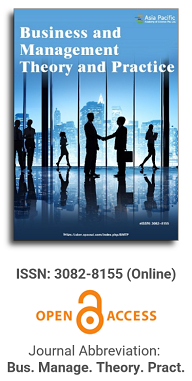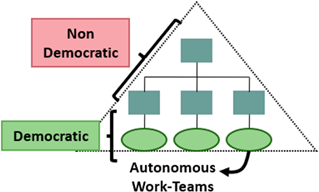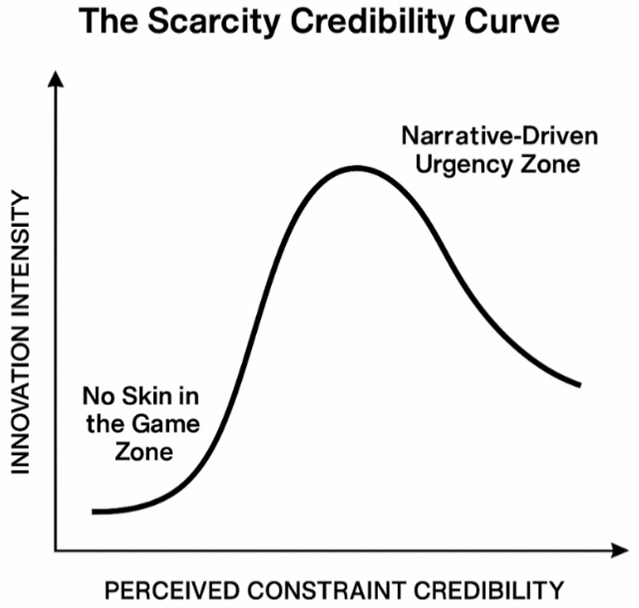
Asia Pacific Academy of Science Pte. Ltd. (APACSCI) specializes in international journal publishing. APACSCI adopts the open access publishing model and provides an important communication bridge for academic groups whose interest fields include engineering, technology, medicine, computer, mathematics, agriculture and forestry, and environment.


Sustainable leadership with authority span on the development of the United Arab Emirates’ oil and gas sector
Vol 2, Issue 1, 2025
Download PDF
Abstract
This study examines sustainable leadership and span of control in the United Arab Emirates (UAE)’s oil and gas industry. Sustainable leadership may boost strategic efficiency, creativity, and operational resilience in geopolitically complex and unstable environments. An optimum span of control permits close supervision without slowing decision-making, notably in its subsidiaries. Results show that sustainable leadership boosts employee engagement and innovation. The review paper shows that the UAE’s gas and oil business faces several obstacles due to political instability and global market fluctuations. The UAE must implement sustainable leadership practices to foster industrial innovation, development, and growth.
Keywords
References
1. Cai X, Khan NA, Egorova O. Transactional leadership matters in green creative behaviour through workplace learning and green knowledge management: moderating role of social network sites use. Personnel Review. 2023; 53(2): 317-335. doi: 10.1108/pr-12-2020-0894
2. Caligiuri PM, Dragoni L. Global leadership development. In: The Routledge Companion to International Human Resource Management. Routledge; 2014.
3. Raza A, Alavi AB, Asif L. Sustainability and financial performance in the banking industry of the United Arab Emirates. Discover Sustainability. 2024; 5(1). doi: 10.1007/s43621-024-00414-z
4. Rojak JA, Munir M. The Relationship between Leadership Styles and Human Resource Management Practices. International Journal of Service Science, Management, Engineering, and Technology. 2023.
5. Meirinhos G, Cardoso A, Neves M, et al. Leadership Styles, Motivation, Communication and Reward Systems in Business Performance. Journal of Risk and Financial Management. 2023; 16(2): 70. doi: 10.3390/jrfm16020070
6. Pellegrini EK, Scandura TA, Jayaraman V. Cross-Cultural Generalizability of Paternalistic Leadership: An Expansion of Leader-Member Exchange Theory. Group & Organization Management. 2010; 35(4): 391-420. doi: 10.1177/1059601110378456
7. Krell N, Davenport F, Harrison L, et al. Using real-time mobile phone data to characterize the relationships between small-scale farmers’ planting dates and socio-environmental factors. Climate Risk Management. 2022; 35: 100396. doi: 10.1016/j.crm.2022.100396
8. Antignac M, Diop IB, Macquart de Terline D, et al. Socioeconomic Status and Hypertension Control in Sub-Saharan Africa. Hypertension. 2018; 71(4): 577-584. doi: 10.1161/hypertensionaha.117.10512
9. Guetta M. The oil curse in UAE: Resource dependence, political settlements, and economic diversification. The Journal of Modern African Studies. 2018.
10. Naja WAR, Ahmad UN ungku. The Impact of Strategic Leadership Styles on Financial Performance in Libyan Oil and Gas Industry. Journal of Law and Sustainable Development. 2024; 12(2): e3302. doi: 10.55908/sdgs.v12i2.3302
11. Kark R, D. T. Barthel A, Buengeler C. Leadership theories through the eyes of she: a gendered and feminist analysis of the development of leadership theories. A Research Agenda for Gender and Leadership; 2023.
12. Barltrop R. Oil and Gas in a New Libyan Era. Oxford Institute for Energy Studies; 2019. doi: 10.26889/9781784671303
13. Abushrenta MMA. Challenges and opportunities of adopting IFRSs in UAE: the case of UAE’s gas and oil sector. Nottingham Trent University (United Kingdom); 2022.
14. Carlyle T. Past and present. Oxford University Press; 2023.
15. Ummatin BNU, Mutmainnah I, Marwiyah S. Analysis of Soekarno’s Leadership Style as President of Indonesia Using the Great-Man Theory Approach (Indonesian). Sospoli Institute Journal. 2024.
16. McLaughlin CP, Kunk-Czaplicki JA. Leadership: Theory and Practice by Peter G. Northouse. Journal of College Student Development. 2020; 61(2): 260-261. doi: 10.1353/csd.2020.0023
17. Khan IU, Amin RU, Saif N. Individualized Consideration and Idealized influence of transformational Leadership: Mediating Role of Inspirational Motivation and Intellectual stimulation. International Journal of Leadership in Education. 2022. doi: 10.1080/13603124.2022.2076286
18. Young HR, Glerum DR, Joseph DL, et al. A Meta-Analysis of Transactional Leadership and Follower Performance: Double-Edged Effects of LMX and Empowerment. Journal of Management. 2020; 47(5): 1255-1280. doi: 10.1177/0149206320908646
19. Benson AJ, McGregor AJ, Martin LJ, et al. The rank dynamics of integrating new members: The process of hierarchical crafting. Sport, Exercise, and Performance Psychology. 2023; 12(1): 72-88. doi: 10.1037/spy0000315
20. Cappelli P. Why Management Has Gotten Worse and The Leadership Issues Behind That. Leader To Leader. 2024; 2024(112): 96-102. doi: 10.1002/ltl.20807
21. Sandbakken C. The limits to democracy posed by oil rentier states: The cases of Algeria, Nigeria and Libya. Democratization. 2006; 13(1): 135-152. doi: 10.1080/13510340500378464
22. Behnasawy M, Zeyadah M, Deedah A, et al. Soil heavy metal pollution and the associated toxicity risk assessment in Ajdabiya and Zueitina, Libya. Scientific Journal for Damietta Faculty of Science. 2024; 14(1): 16-20. doi: 10.21608/sjdfs.2024.248818.1145
23. Iqbal Q, Piwowar-Sulej K. Sustainable Leadership, Environmental Turbulence, Resilience, and Employees’ Wellbeing in SMEs. Frontiers in Psychology. 2022; 13. doi: 10.3389/fpsyg.2022.939389
24. Iqbal Q, Piwowar-Sulej K. Frugal innovation embedded in business and political ties: transformational versus sustainable leadership. Asian Business & Management. 2023; 22(5): 2225-2248. doi: 10.1057/s41291-023-00248-z
25. Iqbal Q, Piwowar-Sulej K, Kallmuenzer A. Sustainable development through frugal innovation: the role of leadership, entrepreneurial bricolage and knowledge diversity. Review of Managerial Science; 2024. doi: 10.1007/s11846-024-00764-y
26. Iqbal Q. The Era of Environmental Sustainability: Ensuring That Sustainability Stands on Human Resource Management. Global Business Review. 2018; 21(2): 377-391. doi: 10.1177/0972150918778967
27. Piwowar-Sulej K, Iqbal Q. 5S implementation, basic needs satisfaction, sustainable leadership and firm sustainable performance: Empirical evidence from the oil and gas industry. Journal of Cleaner Production. 2024; 484: 144354. doi: 10.1016/j.jclepro.2024.144354
28. García-Morales VJ, Jiménez-Barrionuevo MM, Gutiérrez-Gutiérrez L. Transformational leadership influence on organizational performance through organizational learning and innovation. Journal of Business Research. 2012; 65(7): 1040-1050. doi: 10.1016/j.jbusres.2011.03.005
29. Buil I, Martínez E, Matute J. Transformational leadership and employee performance: The role of identification, engagement and proactive personality. International Journal of Hospitality Management. 2019; 77: 64-75. doi: 10.1016/j.ijhm.2018.06.014
30. Jati MKK, Hassan S, Harman MH, et al. Sustainable leadership and organizational culture: A case of MAHB. Procedia Economics and Finance. 2015; 31: 425-435. doi: 10.1016/S2212-5671(15)01217-4
31. Klein G. Transformational and transactional leadership, organizational support and environmental competition intensity as antecedents of intrapreneurial behaviors. European Research on Management and Business Economics. 2023; 29(2): 100215. doi: 10.1016/j.iedeen.2023.100215
32. Hamdani MR. Learning how to be a transformational leader through a skill-building, role-play exercise. The International Journal of Management Education. 2018; 16(1): 26-36. doi: 10.1016/j.ijme.2017.11.003
33. Jyoti J, Dev M. The impact of transformational leadership on employee creativity: the role of learning orientation. Journal of Asia Business Studies. 2015; 9(1): 78-98. doi: 10.1108/jabs-03-2014-0022
34. Tse HHM, To ML, Chiu WCK. When and why does transformational leadership influence employee creativity? The roles of personal control and creative personality. Human Resource Management. 2017; 57(1): 145-157. doi: 10.1002/hrm.21855
35. Kasımoğlu M, Ammari D. Transformational leadership and employee creativity across cultures. Journal of Management Development. 2020; 39(4): 475-498. doi: 10.1108/jmd-05-2019-0153
36. Chaubey A, Sahoo CK, Khatri N. Relationship of transformational leadership with employee creativity and organizational innovation. Journal of Strategy and Management. 2019; 12(1): 61-82. doi: 10.1108/jsma-07-2018-0075
37. Ma X, Jiang W. Transformational Leadership, Transactional Leadership, and Employee Creativity in Entrepreneurial Firms. The Journal of Applied Behavioral Science. 2018; 54(3): 302-324. doi: 10.1177/0021886318764346
38. Tegor T, Johannes J, Jaya RIK, et al. Skill, Transformational Leadership, and Competitiveness: Relationships in A Love Triangle. Al-Tanzim: Jurnal Manajemen Pendidikan Islam. 2023; 7(2): 422-434. doi: 10.33650/al-tanzim.v7i2.5053
39. Purwanto A, Fahmi K, Sulaiman A. Linking of sustainable leadership, learning culture, organizational structure and school innovation capacity: CB SEM AMOS analysis. Journal of Information Systems and Management (JISMA). 2023.
40. Lee M, Kray LJ. A gender gap in managerial span of control: Implications for the gender pay gap. Organizational Behavior and Human Decision Processes. 2021; 167: 1-17. doi: 10.1016/j.obhdp.2021.06.001
41. Ghita RS, Maas VS. The Effects of Span of Control and Temporal Disaggregation of Performance Reports on Discretionary Performance Evaluations. Journal of Management Accounting Research. 2024; 36(1): 139-156. doi: 10.2308/jmar-2022-066
42. Fischer M, Imgrund F, Janiesch C, et al. Strategy archetypes for digital transformation: Defining meta objectives using business process management. Information & Management. 2020; 57(5): 103262. doi: 10.1016/j.im.2019.103262
43. Hensellek S, Kleine-Stegemann L, Kollmann T. Entrepreneurial leadership, strategic flexibility, and venture performance: Does founders’ span of control matter?. Journal of Business Research. 2023; 157: 113544. doi: 10.1016/j.jbusres.2022.113544
44. Rasul I, Rogger D, Williams MJ. Management, Organizational Performance, and Task Clarity: Evidence from Ghana’s Civil Service. Journal of Public Administration Research and Theory. 2020; 31(2): 259-277. doi: 10.1093/jopart/muaa034
45. Fu Q, Abdul Rahman AA, Jiang H, et al. Sustainable Supply Chain and Business Performance: The Impact of Strategy, Network Design, Information Systems, and Organizational Structure. Sustainability. 2022; 14(3): 1080. doi: 10.3390/su14031080
46. Ali M, Seraj M, Türüç F, et al. Do banking sector development, economic growth, and clean energy consumption scale up green finance investment for a sustainable environment in South Asia: evidence for newly developed RALS co-integration. Environmental Science and Pollution Research. 2023; 30(25): 67891-67906. doi: 10.1007/s11356-023-27023-z
47. Raza A, Ali M, Tursoy T, et al. Evaluating the Scandinavian economy’s transition to a sustainable environment. Fresh evidence from newly developed CS-ARDL approach. Resources Policy. 2024; 89: 104566. doi: 10.1016/j.resourpol.2023.104566
48. Kement Ü, Zeybek B, Soylu S, et al. The effect of transformational leadership on restaurant employees on trust, altruistic intention and organizational commitment: the moderation effect of surface acting. European Business Review. 2024; 36(5): 613-638. doi: 10.1108/ebr-05-2023-0169
49. Mansor M, Shaikh AUH, Raza A. Descriptive Model Based Studies on Tqm Practices & Performance Management Practices. In: Business Models: A Study of Turkish Sme’s. Grassroots; 2022.
50. Raza A, Shaikh AUH. A Exploring the Nexus of Financial Incentives and Employee Motivation in Financial Sector: A study of Pakistan. Journal of Managerial Sciences. 2024.
51. Iqbal Q, Piwowar-Sulej K. Sustainable leadership in higher education institutions: social innovation as a mechanism. International Journal of Sustainability in Higher Education. 2021; 23(8): 1-20. doi: 10.1108/ijshe-04-2021-0162
52. Iqbal Q, Piwowar-Sulej K. Organizational citizenship behavior for the environment decoded: sustainable leaders, green organizational climate and person-organization fit. Baltic Journal of Management. 2023; 18(3): 300-316. doi: 10.1108/bjm-09-2021-0347
53. Bayram GE, Abbasi AR, Raza A, et al. The U-shaped relationship between corruption and international tourism demand: A gravity model approach. Turyzm/Tourism. 2024; 34(1): 97-108. doi: 10.18778/0867-5856.34.1.09
Supporting Agencies
Copyright (c) 2025 Author(s)
License URL: https://creativecommons.org/licenses/by/4.0/

This site is licensed under a Creative Commons Attribution 4.0 International License (CC BY 4.0).

Macau University of Science and Technology, Macau




.jpg)
.jpg)
